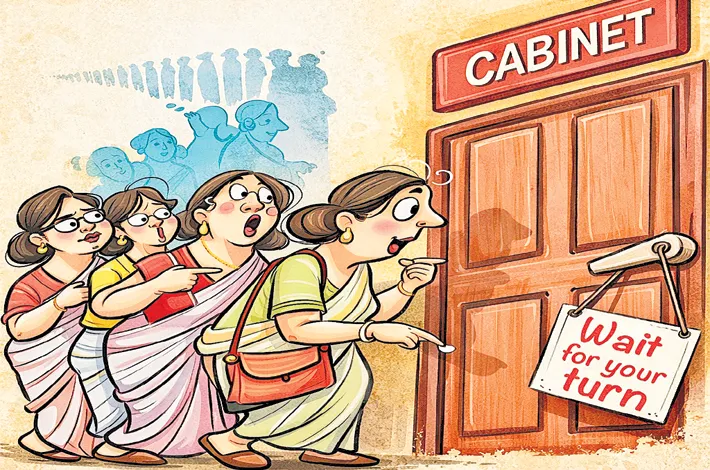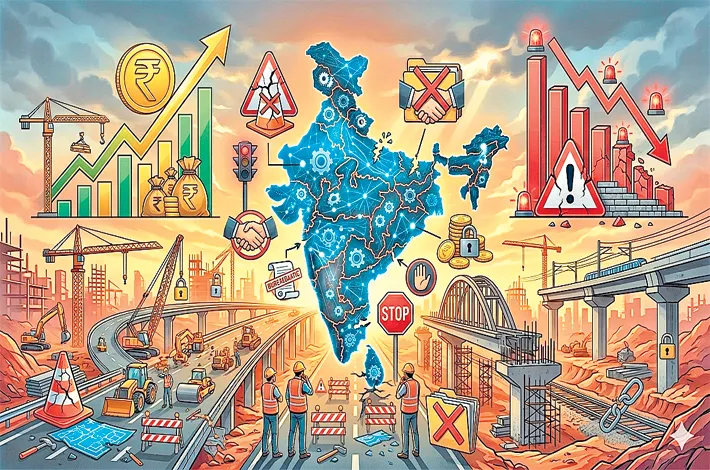The enigma of Lilith: A she demon or an early feminist?
22-11-2025 12:00:00 AM

In a modern context, Lilith represents fight for equality and consent in relationships, and the refusal to accept a subordinate role in society
Anybody with a passing acquaintance with Christian or Jewish religious texts would know the story of Adam and Eve: how she was tempted by a serpent to taste the forbidden fruit from the Tree of Knowledge and how she coaxed Adam to eat it too, which resulted in their expulsion from Eden. But not many know about Lilith.
She was, according to mythology, Adam’s first wife. The most popular Jewish legend, notably from the mediaeval text Alphabet of Ben Sira, is that Lilith was created by God from the same Adamah (earth) as him. She considered herself his equal and, for her refusal to be subservient to him, was thrown out of home.
Shinie Antony’s slim book, Eden Abandoned, has just won the Laadli Award for Gender Sensitivity for fiction. It is a retelling of the story of Lilith in her fierce, unrepentant, sarcastic voice.
There have, of course, been many books—both classical and modern literature—and scholarly texts about this enigmatic woman; artists have interpreted her beauty (her long hair and alabaster skin) and allure. Antony’s book is like a reminder of this “pioneering feminist”, which could set off the curious reader into a search for the many faces of Lilith.
In Antony’s book, what drives Lilith’s rage is the question, “Why must I lie beneath you?” Even with a population of two humans, the personal takes on the tone of power politics. As Antony puts it, Lilith’s “manufacturing defect” is simply the inability to nod and obey without question.
When Adam seeks another partner to assuage his loneliness, God creates Eve out of his rib. She is the docile partner he wants, instead of the one who demands equality. Eve does her duty of serving him and bearing his children without a word of complaint. She is placid and malleable—the traits most men still seek in their wives.
“Women are born in survival mode. Their job, they are told, is to love. But what is this love they neither know nor see—this illiquid, no-return-on-investment, invisible land they must buy with all their soul money?” says Lilith in the book.
She sneers, “Eve loved Adam. Love was the answer to all female questions. Love a man, and vroom through the highway of life without brakes. Love was the myrrh oil that cured everything from syphilis to leprosy. Love, love, love. I can almost hear Eve hawk it in a basket.”
There is punishment for Lilith’s independence and sexual liberation. The 100 children she bears in her womb are killed by a cruel God. In grief and rage, she becomes a rampaging succubus and killer of children. Mothers’ lullabies and talismans were prayed to keep Lilith away from the cradles of their infants.
A woman like her would scare a patriarchal society and be easily erased from scriptures and folklore. In a brief, tautly structured narrative, Antony packs in a lot of social commentary on the way men have controlled women and on how women have collaborated in their own oppression.
She reimagines Lilith as a figure of nonconformity, empowerment and autonomy—”a historic villainess and a modern-day heroine”. Eve is portrayed as compliant and dull.
Lilith marries the demon Samael, who gives her respect and does not curb her freedom. In Samael’s other wives, she finds a supportive sisterhood.
Over time, Lilith acquired shape-shifting powers and took up residence on the Tree of Knowledge, in the body of a snake. She befriended a lonely Eve and became her confidante. Most versions of this legend portray the serpent as a forked-tongued Satan, but a jealous and hurt wife trying to punish her rival makes sense too.
Once Eve was convinced to eat an apple from the tree, she set off the chain of events that led to the expulsion of her and Adam from Eden.
Knowledge gave them the concept of shame, of sin and guilt. Innocence was truly lost.
At the time when the women’s movement was taking shape, Lilith’s story was a powerful lens through which to view the modern woman’s gender struggles. She was released from obscurity and given her due as the original rebel, the woman who broke the shackles of domesticity and chose to fly.
In a modern context, Lilith represents the fight for equality and consent in relationships, and the refusal to accept a subordinate role in society.
Lilith’s story challenged the patriarchal and hierarchical structures of early religion and society; the idea that a woman could demand equality was deemed disruptive, so Lilith was demonised, and Eve’s role as Adam’s companion and helpmate was held up as an ideal for women.
In a way, Lilith freed Eve too, by making her choose knowledge over blissful ignorance. Antony has also edited a book of stories, titled Hell Hath No Fury, about women who find unusual ways to punish men who betrayed them. But that’s a tale for another day.








